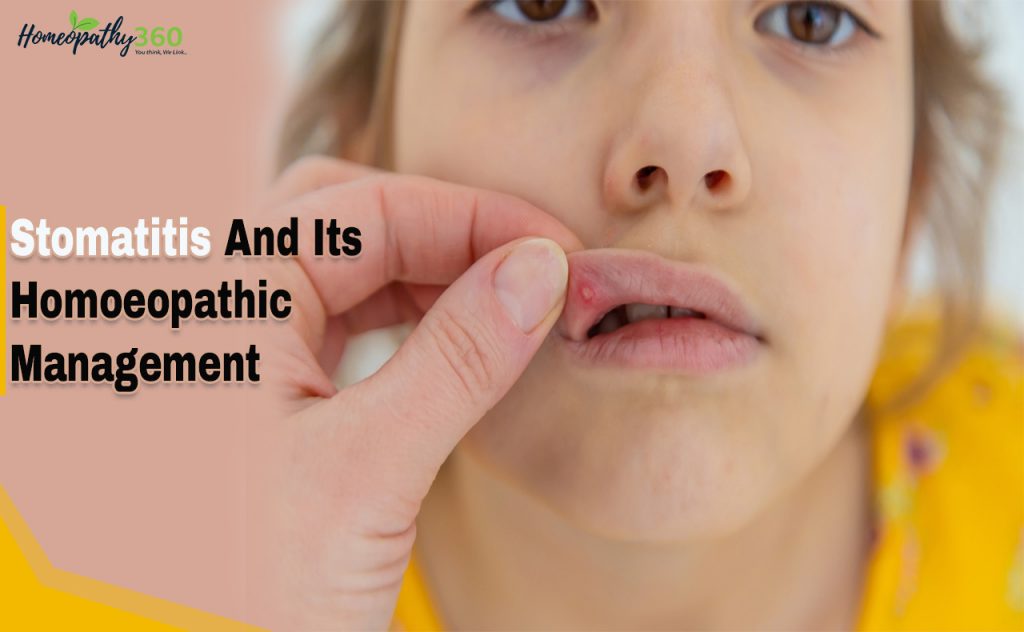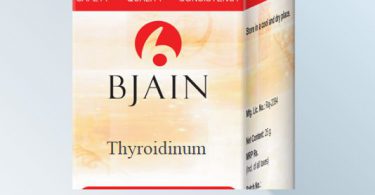
Stomatitis is the inflammation of the mucous linings of the mouth which may include the gums, tongue, cheeks, lips and the floor or roof of the mouth with or without oral ulceration.
Types of Stomatitis:
There are four main types of stomatitis, viz.-
- APHTHOUS STOMATITIS:
Aphthous stomatitis is one of the most common diseases of the oral mucosa, and is thought to affect about 20% of the general population to some degree.
ETIOLOGY:
The etiology is not confirmed, but in some cases it is seen that the condition represents T cell mediated immune response which is triggered by a variety of factors. The individual ulcers recur periodically and heal completely, although in the more severe forms new ulcers may appear in other parts of the mouth before the old ones have finished healing.
PREDISPOSING FACTORS:
- Trauma
- Stress
- Nutritional deficiency
- Hormonal imbalance
- Family predisposition.
CLINICAL FEATURES:
Symptoms:
- Sore mouth
- Pain
- Burning sensation
- Halitosis
Signs:
- Crops of small vesicles
- Shallow ulcers
- Erythema
- Base with grayish white exudates
- ALLERGIC CONTACT STOMATITIS:
It is also known as allergic gingivostomatitis. This is a type IV hypersensitivity reaction which occurs in susceptible individuals when allergens penetrate the skin or mucous membrane. Allergens are different for different individuals. Allergic Contact Stomatitis is less common than Allergy Contact Dermatitis because the mouth is coated with saliva, which washes away antigens and acts as a barrier.
Some common allergens are-
- Some vegetable foods, e.g. Zamikand
- Some antibiotics, bismuth, lead etc
CLINICAL FEATURES:
Symptoms:
- Sore mouth
- Pain
- Burning sensation
- Halitosis
Signs:
- Oral mucous membrane of mouth red and swollen
- With or without ulceration
- INFECTIOUS STOMATITIS:
This is a very common disorder of reptiles e.g. lizards, snakes, and turtles. When a reptile is under stress its immune system becomes weak and unable to keep the bacteria that are normally present in the mouth in check.
Organisms that causes infective stomatitis are-
- Bacteria
- Streptococci
- Corynebacterium Diphtheriae
- Virus
- Herpes Simplex
- Herpes Zoster
- Measles
CLINICAL FEATURES:
Symptoms:
- Sore mouth
- Pain in mouth
- Burning sensation
- Halitosis
- Fever
- Malaise
- Ptyalism (Increased Salivation)
Signs:
- Severe ulceration on gums, lips, and inner sides of cheeks
- Irregular margins
- Covered with grayish slough
- Surrounding erythema
- Tender
- Bleeding on removing of slough
- Enlargement of regional lymph nodes
- CATARRHAL STOMATITIS:
CAUSES:
Local causes:
- Excessive tobacco chewing
- Alcohol
- Spices
- Antibiotics and some other drugs
Systemic causes:
- Leukemia
- Infectious disease
CLINICAL FEATURES:
Symptoms:
- Sore mouth
- Pain
- Burning sensation
- Halitosis
Signs:
- Redness of mucous membrane
- Increased salivation
- Tongue- dry, swollen, thick coated
PREVENTION:
Stomatitis is caused by local irritants and it can be prevented by maintenance of oral hygiene, regular dental checkups, and good dietary habits. Stomatitis caused by systemic disease can be minimized by good oral hygiene and closely following the medical therapy prescribed by the patient’s health care provider.
Homeopathic medicines for mouth ulcers
1. Merc Sol– One of the best homeopathic medicines for mouth ulcers with increased salivation.
When there is an increase in the production of saliva, Merc Sol is one of the best homeopathic medicines for aphthae. One of the main indications of this medicine is increased thirst along with increased salivation. The saliva is thick and viscid.
There is a foul smell in the breath. The tongue becomes thick, yellow and flabby with the indentation of teeth. The ulcers appear with every change of weather.
2. Kali Iod– One of the best homeopathic medicines for mouth ulcers with milky base.
When there is a milky coating at the base of the ulcers, Kali Iod is one of the best homeopathic medicines for aphthous mouth ulcers. There is increased sensitivity all over. The glands, the skin and tongue are all sensitive to touch. Spitting of blood is also seen.
3. Nitric Acid– One of the best homeopathic medicines for mouth ulcers with stitching pain.
When there is stitching or splinter-like pain in the ulcers, Nitric Acid is one of the best homeopathic medicines for mouth ulcers. There are blisters all over which bleed easily. This medicine affects all mucous membranes especially where the mucous membrane meets the skin.
There may be bleeding from gums too. Ulcers may also be present in the soft palate. Bloody saliva is also present in some cases.
4. Sulphuric Acid– One of the best homeopathic medicines for mouth ulcers that are white in colour. When the ulcers are white in colour, Sulphuric Acid is one of the best homeopathic medicines for aphthae. There is internal weakness and trembling. This trembling may even be present in the tongue. Sour eructations are present which set the teeth on edge.
5. Arsenic Album – One of the best homeopathic medicines for mouth ulcers which are bluish. When the ulcers are bluish in colour, Arsenic Album is one of the best homeopathic medicines for aphthous ulcers. There is a thirst for little quantities of water at frequent intervals. Tongue is dry, clean and red. Anxiety and restlessness commonly accompany any symptoms when this medicine is indicated.





